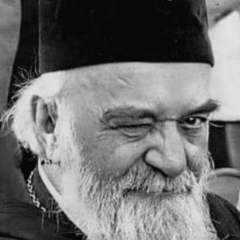Оријенталне Православне Цркве (Копти, Јермени, Етиопљани..)
Оцени ову тему
-
Чланови који сада читају 0 чланова
- Нема регистрованих чланова који гледају ову страницу
-
Сличан садржај
-
- 0 коментара
- 83 прегледâ
-
- 0 коментара
- 329 прегледâ
-
Свечано представљање комплета издања „Рукописи Музеја Српске Православне Цркве: Збирка Радослава М. Грујића“ и отварање пратеће изложбе
Од JESSY,
- свечано
- представљање
- (и још 13 )
- 0 коментара
- 212 прегледâ
-
Сећање на старца Јакова Цаликиса - светитеља Православне Цркве
Од JESSY,
- православне
- светитеља
- (и још 9 )
- 0 коментара
- 356 прегледâ
-
- 0 коментара
- 224 прегледâ
-



Препоручена порука
Придружите се разговору
Можете одговорити сада, а касније да се региструјете на Поуке.орг Ако имате налог, пријавите се сада да бисте објавили на свом налогу.